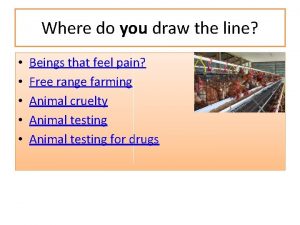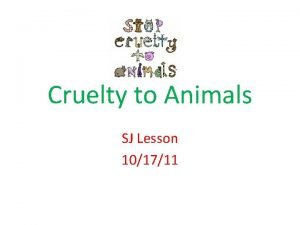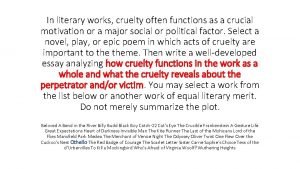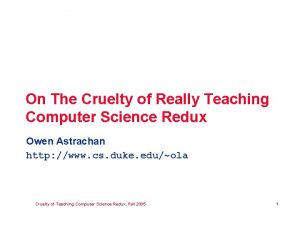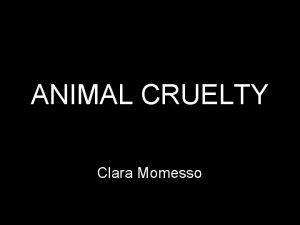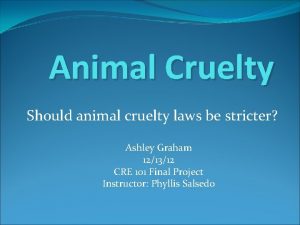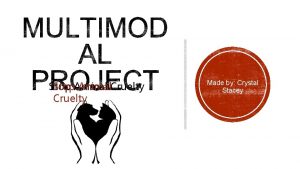LEARNING MATHS FOR SOCIAL JUSTICE ANIMAL CRUELTY We




- Slides: 4

LEARNING MATHS FOR SOCIAL JUSTICE: ANIMAL CRUELTY We are four students who are against animal cruelty and we believe that animals should be treated like humans should. Our aim for this project is to raise awareness of animal cruelty and to persuade people to donate in order for us to ensure they are looked after for the right amount of time in pet shelters.

Rocky’s road to recovery Rocky the dog was shot in the head five times, battered with a shovel and left to die in a ditch by the roadside. Amazingly, he survived long enough to be found, rescued, nursed back to health and rehomed. Investigating officer: RSPCA Inspector Michelle Mc. Nab Defendant: Male 38, steel fabricator Offences: Animal Welfare Act 2006 s 4 Pleas: Guilty Total number of convictions: Three Sentence: Disqualified from keeping animals for 20 years; 20 weeks' imprisonment. This was retrieved from the RSPCA website. Cases like these are solved everyday. We used questionnaires to find out information. Here is what we found out from 22 people. Do you donate to animal shelters? If you do, how much? How often would you be prepared to donate? 18% said yes 27% said above £ 5 14% said Once a week 82% said No 23% said below £ 5 59% said Once a Month 50% don’t donate 18% said Once a Year 9% said I don’t want to donate

Our proposal is that we raise money to donate to charity as well as educate people about animal cruelty. We think that animals are just as important as people!

Our group will fulfil this idea and make it aware to the public, as we strongly believe that animals are just as important as, we, humans! • We research reliable and known animal shelters that impacted animal life, e. g. RSPCA, Battersea ect. We, then, e-mail the animal shelters, asking them politely to gather useful data that will help us with this project. • We will find and research primary and secondary sources to add to the current collected data. • We will make surveys and questionnaires for the public. . . particularly, our whole school.
